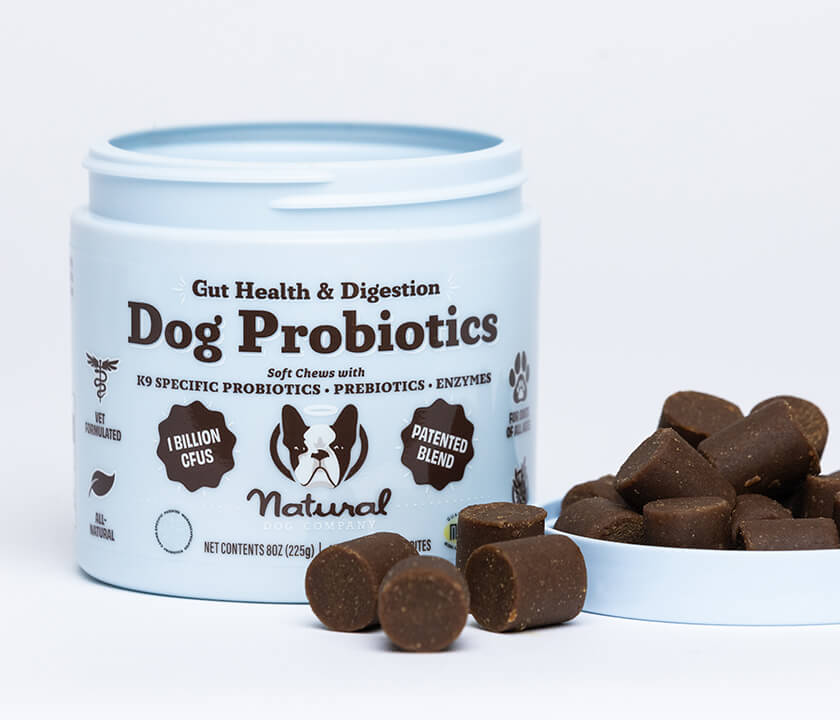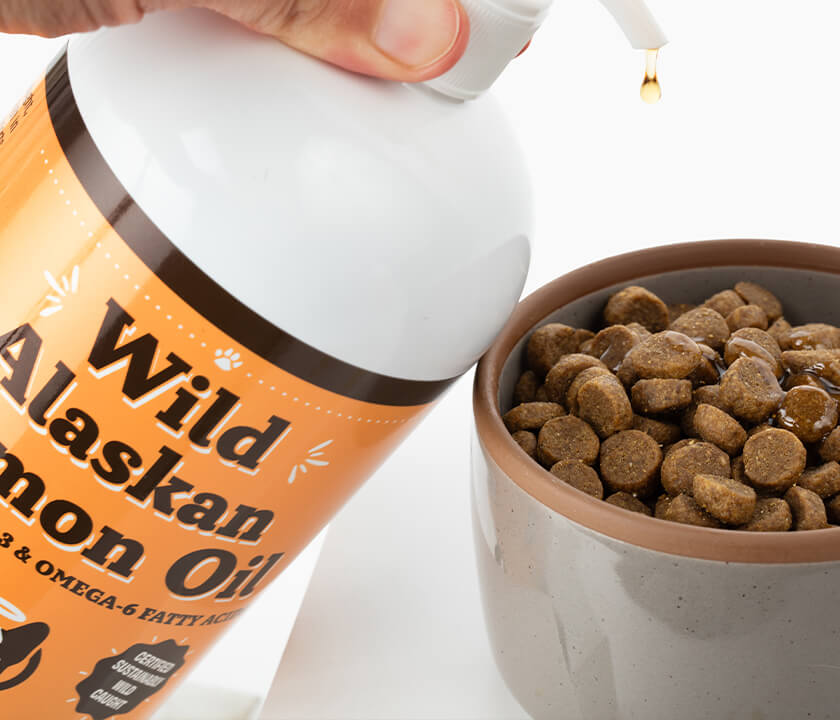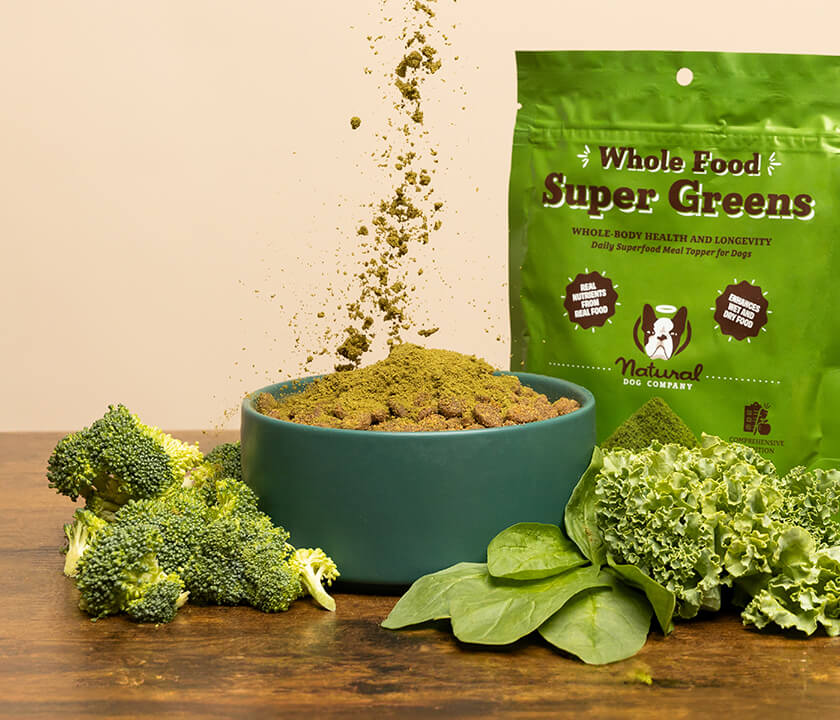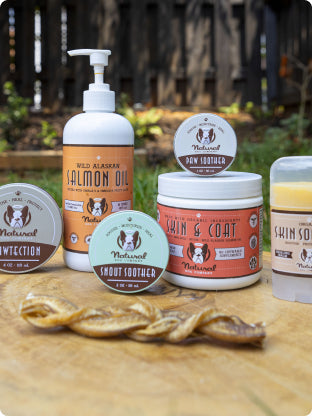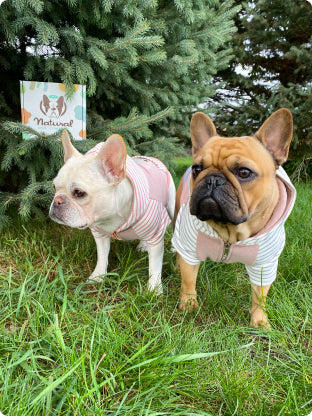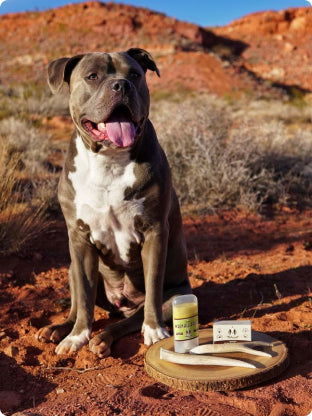Is your dog itchy, covered in red patches, or developing odd lesions or sores? The culprit could very well be canine dermatitis. It is very common for dogs of all breeds and ages to develop skin issues. There are different types of canine dermatitis including atopic dermatitis, sarcoptic mange, and hot spots. Knowing what type of canine dermatitis your four-legged pal is suffering from can help determine the best treatment option.
Types of Canine Dermatitis
Here are some of the most common types of canine dermatitis. Plus, learn how to naturally give your pup the relief they deserve.
Contact Dermatitis
As its name suggests, contact dermatitis is caused by contact with an irritant. For instance, if your dog develops an itchy rash right where his collar sits. It can also include things like contact with certain floor cleaners, deicers, or anything else your dog is allergic to and comes into direct contact with.
Atopic Dermatitis
This is the most common cause of itch-provoking dermatitis in dogs. It is the result of an allergen in your dog’s environment—but it might not occur directly at the point of contact, as with contact dermatitis. It’s important to identify the allergen and remove it from the environment. It also helps to apply a topical anti-inflammatory treatment like Skin Soother to the affected area. Ear infections are common in dogs with atopic dermatitis.
Related Read: How To Heal Skin Dermatitis In Dogs
Acral Lick Dermatitis
Acral is a term used to define “on the extremities,” and dogs with this type of dermatitis lick one area on their leg, tail, or foot. Excessive licking leads to wounds. It originates from one of several conditions that cause itching of the skin, such as atopic or contact dermatitis (explained above), painful joints or bones, stress, boredom, or OCD. Licking can also become an addictive pastime for your pet, at which point it’s more difficult to stop.
Usually, this issue presents itself on the front lower paw, base of the tail, or part of the legs. Initially, the area will appear red and irritated with thickened skin.
Flea Allergy Dermatitis
An allergic reaction to fleas results in canine flea allergy dermatitis. It isn’t the bite itself, but rather flea saliva that causes the adverse reaction. This issue causes excessive itching that can lead to hot spots.
Sarcoptic Mange
Caused by the Sarcoptic mite, sarcoptic mange is highly irritating to dogs. It generally impacts the belly, ears, legs, and chest.
Hot Spots, also known as Pyotraumatic Dermatitis
When dogs constantly lick, bite, and scratch, the skin cannot properly heal. This results in an overgrowth of bacteria, and ultimately the development of hot spots. Usually, an underlying skin issue is to blame. German Shepherds and Golden Retrievers are more prone to this than other dog breeds, but no breed is immune. Signs include hair loss, red and inflamed skin, as well as the potential for sores that pus.
Malassezia Dermatitis
Malassezia is generally a harmless type of yeast or fungus that resides on your dog’s skin. Problems can arise if malassezia populations get out of control. This is more likely in dogs with a predisposition to skin allergies or seborrhea. Skin may appear greasy, red, scaly, thickened, and dark; skin sores may release a stinky discharge. It is most commonly spotted near the legs, neck, and armpits, as well as the feet.
Related Read: How to Treat Dog Eczema
Skin Soother Offers Relief from Canine Dermatitis
With so many different types of canine dermatitis, it can take some time to find the culprit. In the meantime, your dog needs relief to help reduce discomfort and deter itching (as much as possible).
Skin Soother is the all-natural and affordable solution to many different types of canine dermatitis. Not only does it provide instant relief, but thanks to the fact it’s packed with anti-inflammatory, antibacterial, and anti-fungal properties, it also goes to work healing the skin.
Skin Soother treats & heals:
- Wounds, cuts, burns
- Skin irritations, rashes
- Hot spots
- Yeast and fungal infections
- Allergy symptoms
- Post-surgical wounds
- Inflamed bug bites
- Lick granuloma
- Bacterial infections
